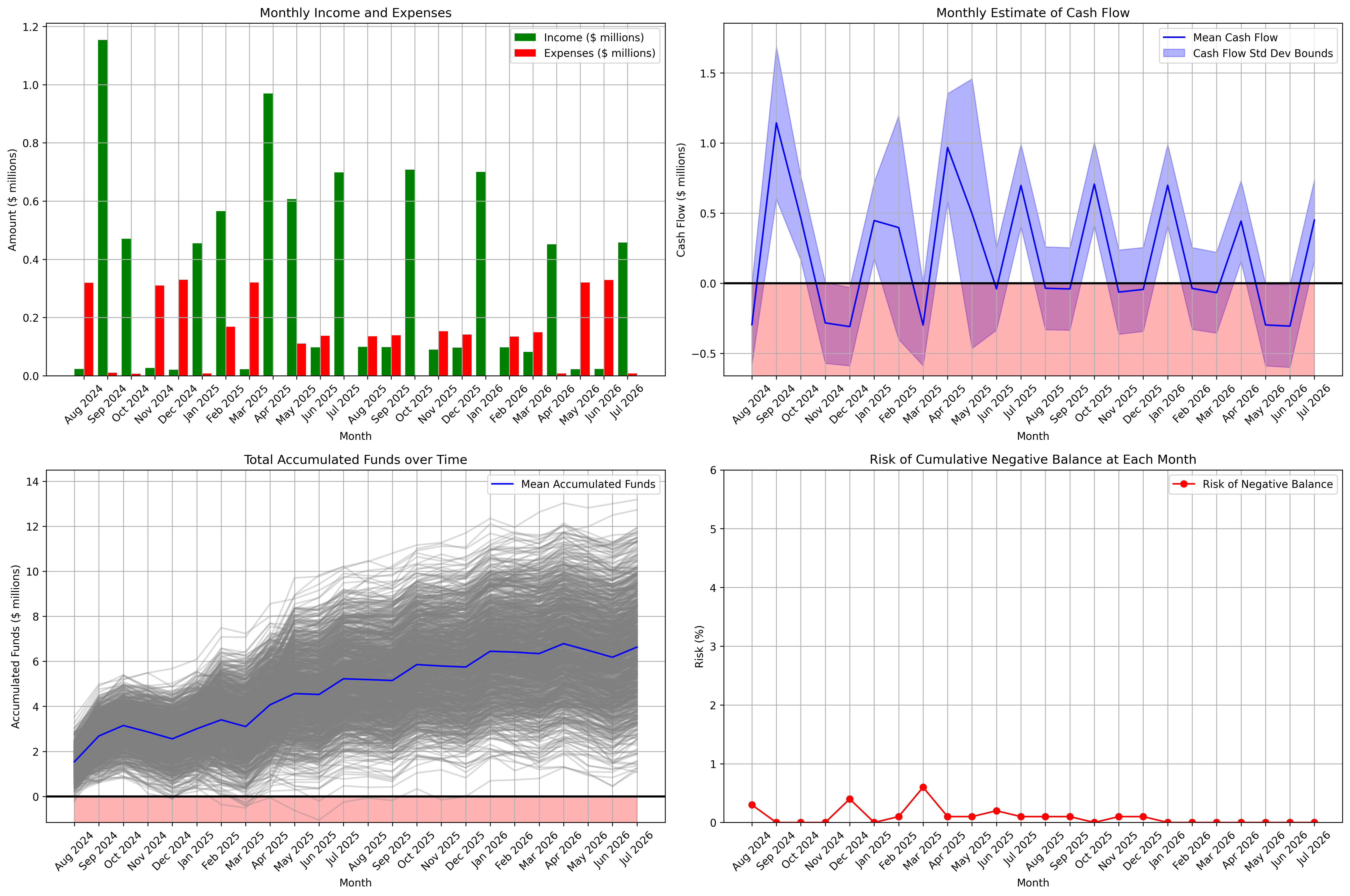Improving How Universities Teach
Book Review – Improving How Universities Teach Science (Carl Wieman)
Recently I have written posts on the challenges and subtleties of keeping a healthy funding stream for a scientific team. We have also covered some creative practices and opportunities to mitigate some of the risks involved and challenges identified.
This is my own attempt at contributing something to this cause. Keeping track of a group’s finances can be tricky; being able to forecast one’s funding capacity, measuring opportunities against burning rates, can be the difference between being caught unprepared or stably honoring the trust other researchers put on the team manager. Thus, I introduce the “Cash Flower”, a simple Monte Carlo program to provide financial forecasts for an organization funded by typical means a researcher may encounter. Find the source and installation insructions on this repo.
Financial data can be input in four different types of categories:
Users may flexibly encode data from their different funding streams in the categories above, with pre-determined probabilities of realizing each event, according to preferences, convenience, or mindset. No single right way of doing it.
Given a set of financial data, Cash Flower outputs some traditional data analytics upon estimating several scenarios of success or failure at achieving revenue or expenses. These analytics include, for the moment, monthly revenue/expense reports, an analysis of the accumulated funding in the organization as function of time, and the risk of going negative. Here goes what the generated plots can look like for some example data:

This program is open source and all are welcome to contribute to the project. Some of my current ideas for improvement include:
Bug reports are also welcome, particularly identifying situations where the program fails!
I hope Cash Flower will help scientific managers and individual contributors alike to better monitor the financial health of their endeavours!
Disclaimer: as of the writing of this post, these resources have not yet been tested on realistic scenarios.
For this one I owe a big thanks to my wife, Marianne, for the support, helping with debugging, and feature suggestions. Hope this will be useful to her one day! I also owe the idea for creating this program to Yuval Boger, “The Superposition Guy”.
Book Review – Improving How Universities Teach Science (Carl Wieman)
Back to book reviews! The backlog is growing!
This post is a long one in the making. I should dedicate it to my wife, as this has been a family project running for years. We will divert from science mana...
Short post inspired by a big lesson. Recently I was in a conference and me and other scientists were discussing how easy or hard it was to get strong perform...
What better way to start the new year than with Words of Wisdom? For the second installment of our blog series featuring interviews with science managers, we...
Through fall season, Harvard hosts a Science & Cooking course, where science topics relevant for cooking such as soft matter, organic chemistry, heat tra...
Basic project management often begins with a charter—a set of agreements that define the rules and expectations for team collaboration. I believe a team char...
Lazy blogging. I don’t want to reblog a topic someone else just did. So I will just point people to this interesting piece on should students teach? at Conde...
In my journey to expand my knowledge from physics to effective management practices, I maintain a steady, yet unhurried reading pace. I find the experience e...
Recently I have written posts on the challenges and subtleties of keeping a healthy funding stream for a scientific team. We have also covered some creative ...
As a research manager, securing stable funding for your group is a critical responsibility. Your team, whether students or professionals, relies on you as th...
Starting a new blog series at Set Physics to Stun! While most of my posts are based on my own experience, observations, or creations in science and scientifi...
A (total!) eclipse, travel, and hackathons have slowed down my blogging. That together with, for the first time, being asked to do the technical review of a ...
A busy week of teaching and preparing for an upcoming trip to Quebec to witness the eclipse left little time for blogging. Nonetheless, I’ve been mulling ove...
This post tells a bit of my own professional story as I left life as a pure researcher, and then moves toward introducing my first managerial tool for scient...
As I keep trying to create technical content, columns on Nature continue to interrupt me. Seems like these really are good sources of inspiration.
While I was working on a much more technical first post, Nature released a News article on a core raison-d’être of this blog: the trust of public in scientis...
This is it, I can’t believe I am finally starting this! Welcome to “Set Physics to Stun”, my blog on physics, scientific management, and other topics relevan...